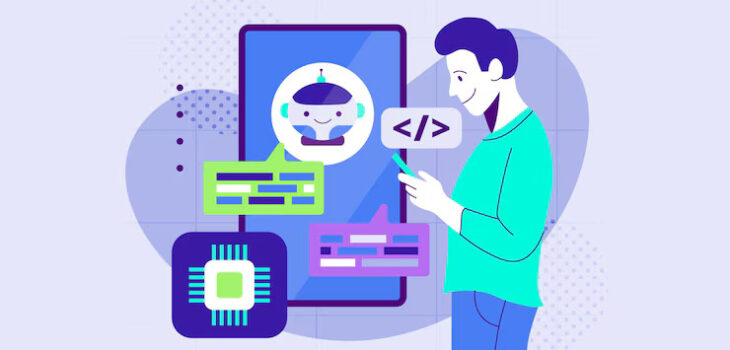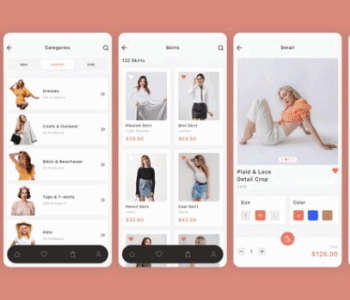 Technology
Technology
Top 10 AI Chatbot Tools You Should Try for Business Automation
- by glorywebs
If you’re running a business in today’s fast-paced digital world, automation is no longer just an option—it’s a necessity. And what better way to automate customer interactions than with AI chatbot tools? These intelligent bots don’t just respond to queries—they learn, adapt, and help streamline everything from customer service to lead generation. Whether you’re a small business or an enterprise-level organization, the right chatbot can save time, cut costs, and improve customer satisfaction.
So, let’s dive into the top 10 AI chatbot tools you should try for business automation, especially if you’re considering GPT-powered chatbot tools for advanced, human-like interactions.
1. ChatGPT by OpenAI
Arguably the most recognized name in the AI space, ChatGPT has redefined conversational AI. Businesses use it to power customer support, automate FAQs, and even provide product recommendations. What makes it stand out is its deep understanding of context and tone—something you’d expect only from a real human. Plus, if you’re exploring GPT Chatbot Development, this is your foundational tool.
✅ Best For: Natural language understanding, custom chatbot creation
✅ Pros: Human-like responses, continuously learning
✅ Cons: Limited control over specific outputs unless fine-tuned
2. Dialogflow by Google
Dialogflow is ideal for businesses already integrated into the Google ecosystem. It’s great for voice and text-based chatbots and supports over 20 languages. Developers appreciate the rich set of APIs, while non-tech users love the visual flow builder.
✅ Best For: Voice-enabled bots, multilingual bots
✅ Pros: Great NLP, supports multiple platforms
✅ Cons: Learning curve for beginners
3. Microsoft Bot Framework
If you’re working within a Microsoft environment, the Microsoft Bot Framework is a no-brainer. It’s powerful, scalable, and supports deployment across multiple channels like Teams, Slack, and even Alexa. Plus, it allows for GPT-powered chatbot tools integration for more advanced conversational flows.
✅ Best For: Enterprise-grade bots, multi-channel deployment
✅ Pros: Highly customizable, great integration options
✅ Cons: Requires programming knowledge
4. ManyChat
Tailored for marketing automation, ManyChat is widely used in e-commerce. It supports Facebook Messenger, SMS, and Instagram DMs. This tool is perfect for nurturing leads, sending promotional messages, and increasing conversions.
✅ Best For: Sales and marketing automation
✅ Pros: Drag-and-drop interface, templates
✅ Cons: Limited natural language understanding
5. Tars
Tars specializes in building high-converting chatbots for lead generation. Instead of using NLP, it guides users through decision trees, making it great for specific use cases like booking appointments or qualifying leads.
✅ Best For: Landing page conversions, lead generation
✅ Pros: Easy to build, no coding required
✅ Cons: Not ideal for complex conversations
6. Drift
Drift is a conversation-driven marketing platform designed for B2B businesses. What makes Drift stand out is its ability to qualify leads, schedule meetings, and even route them to sales reps automatically. Its real-time conversation intelligence is what gives it a leg up in sales pipelines.
✅ Best For: B2B sales and marketing
✅ Pros: Meeting scheduler, CRM integration
✅ Cons: Pricey for smaller businesses
7. Botsify
Botsify is a user-friendly chatbot platform perfect for educators, customer support teams, and small businesses. With a strong focus on human takeover features, Botsify ensures a smooth handoff to live agents when needed.
✅ Best For: Customer support and education
✅ Pros: Multi-language support, simple UI
✅ Cons: Fewer advanced features
8. Landbot
Landbot focuses on creating conversational landing pages. Its drag-and-drop builder is intuitive and doesn’t require any coding. It’s great for capturing leads and guiding users through a journey, especially when you don’t need deep AI or NLP.
✅ Best For: Interactive landing pages, lead capture
✅ Pros: Great UX, easy integrations
✅ Cons: Not suitable for complex chat flows
9. Ada
Ada is an AI chatbot platform geared toward large enterprises. It automates 80 %+ of customer interactions while integrating seamlessly with CRMs, ticketing systems, and analytics tools. With a strong emphasis on performance and scalability, Ada is often seen in industries like finance and telecom.
✅ Best For: High-volume customer service
✅ Pros: AI-powered, robust analytics
✅ Cons: Higher cost and learning curve
10. Chatfuel
Perfect for businesses focused on Facebook Messenger and Instagram, Chatfuel is popular among marketers for automating outreach, broadcasting messages, and supporting basic customer queries. With its simple templates, you can get a bot up and running in under an hour.
✅ Best For: Social media automation
✅ Pros: Fast setup, useful templates
✅ Cons: Limited scalability
Why GPT-Powered Chatbot Tools Are Game-Changers
What makes GPT-powered chatbot tools stand out from traditional bots? It’s their ability to understand and generate human-like language. Rather than rigid, scripted responses, these bots can carry out fluid, context-aware conversations. Whether you’re addressing FAQs, managing bookings, or offering customer support, GPT-powered bots can transform how your business engages with customers, intuitively and efficiently.
More businesses are now investing in GPT Chatbot Development to build customized experiences tailored to specific industries like healthcare, real estate, and finance. These bots aren’t just reactive—they’re proactive, learning from interactions and evolving with every conversation.
How to Get Started with GPT Chatbot Development
If you’re serious about automation, investing in GPT Chatbot Development can be a smart long-term move. First, identify your business goals—are you trying to reduce support costs, improve response times, or boost engagement? Then, choose a platform that aligns with your tech stack.
Companies offering ChatGPT Development Services can help you build tailored bots without having to write a single line of code. These services often include API integration, conversational design, and performance analytics to ensure your bot grows with your business.
One standout solution we’ve come across is. This tool simplifies bot training, supports advanced workflows, and enables full customization, making it a strong contender in the world of business automation.
Final Thoughts
Business automation is no longer a luxury—it’s a necessity. And AI chatbot tools are leading the charge. From handling support tickets to generating leads and scheduling appointments, chatbots are changing the way businesses operate. By choosing the right tool, especially among the advanced GPT-powered chatbot tools, you can provide smarter, faster, and more personal interactions for your users.
So, whether you’re just getting started or looking to level up your automation game, now’s the time to embrace these AI tools and make them a core part of your growth strategy.








